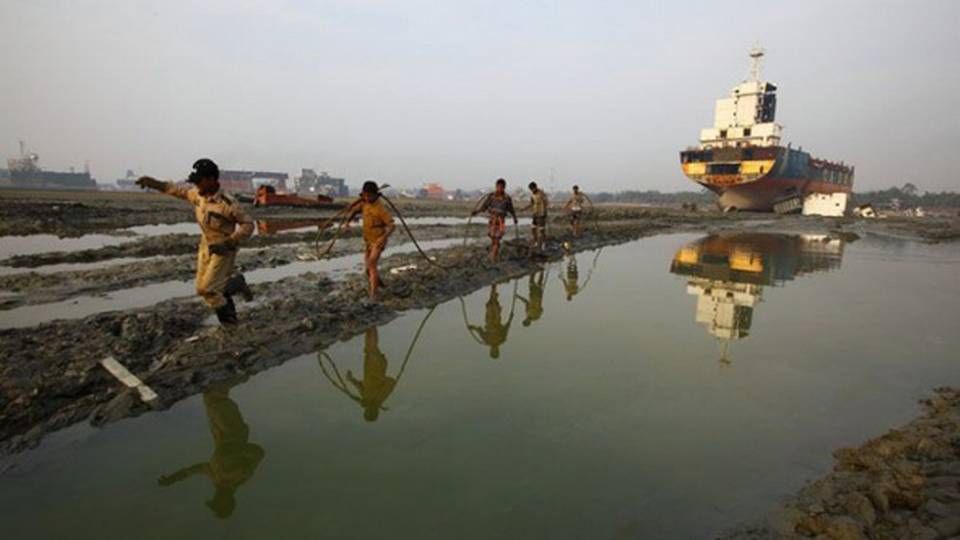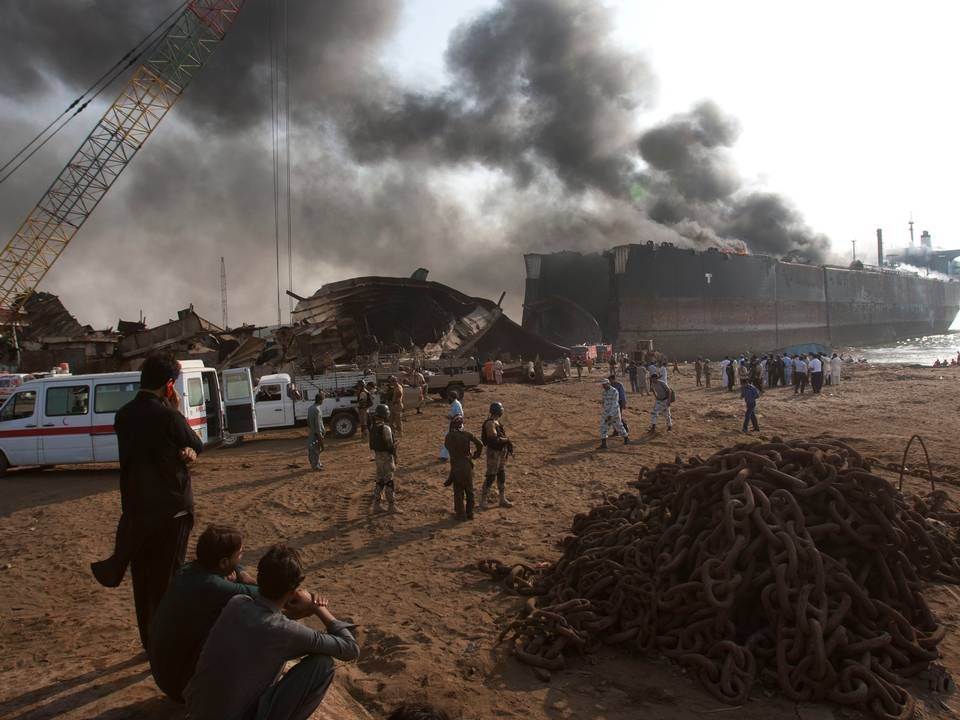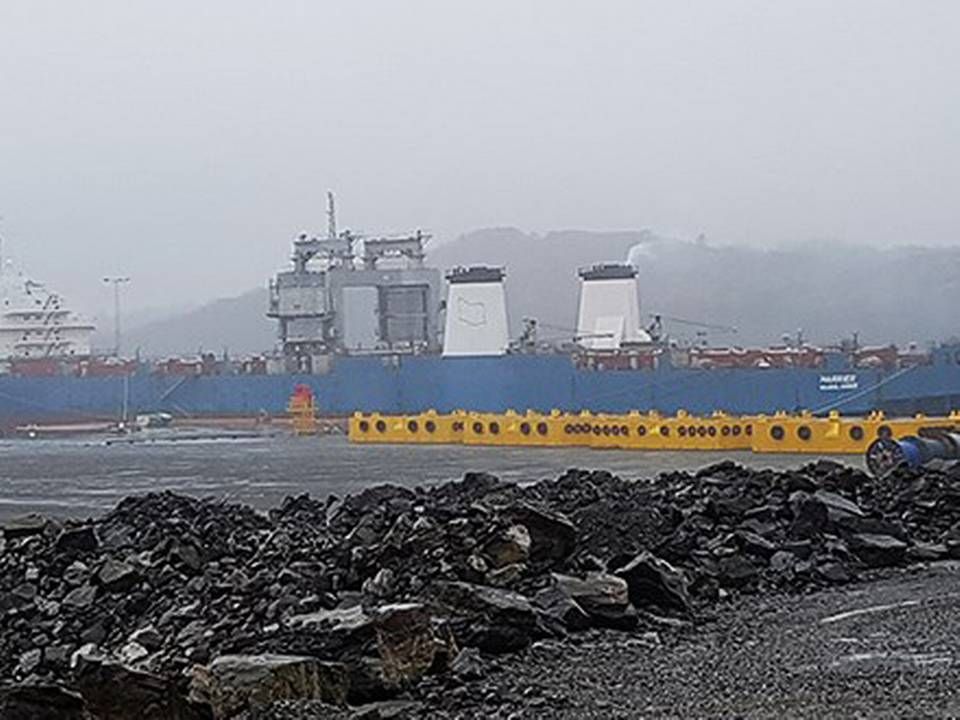Why the Norwegian oil fund blacklisted carriers for beaching

Severe pollution, deadly working conditions and the use of child labor during the dismantling of vessels spurred Norway's Government Pension Fund Global (GPFG) to blacklist four carriers.
The fund announced Tuesday that it has ditched its investments in four carriers because they have scrapped vessels on the beaches in Pakistan and Bangladesh, harming the environment and putting workers' health at risk.
The fund's Council on Ethics has decided to exclude the carriers, and in the accompanying recommendations explaining the decision, the Council on Ethics fiercely criticizes the shipping industry's practice of scrapping vessels in South Asia.
Across several pages, the council describes in detail how carriers, according to the fund, are consciously contributing to systematic violations of human rights and international environmental conventions in order to get the highest scrap price for their end-of-life vessels.
"It must be considered common knowledge in the shipping sector, that the environmental and working conditions of beaching are very poor. That ships are still sent to be dismantled at the Chittagong beach in Bangladesh or on the beaches in Gadani in Pakistan is the consequence of an active choice, which the company that owned the ships has made to maximize its profit," writes the Council on Ethics.
"There are better ways to scrap vessels available to the company, but they cost more," argues the fund, noting that the carriers therefore are independently responsible for the damages caused during dismantling.
India was not reviewed
The fund has settled on the blacklisted carriers by reviewing lists of scrapped vessels made available by the NGO Shipbreaking Platform in an effort to shine light on the issue.
The NGO has been looking for shipping companies in which the GPFG has invested and which scrap their vessels on the beaches in Pakistan and Bangladesh.
The fund has not yet reviewed the conditions in India, even though a significant portion of the world's tonnage is scrapped at the country's beaching facilities in the Alang coastal region. This includes ships from Maersk Line. It remains unknown whether India will be reviewed later.
GPFG invests the Norwegian government's income from the oil industry in a broad range of sectors, and the fund is the world's largest sovereign investor. Though the investments in the four carriers are fairly small, there is an important symbolic value in blacklisting the carriers, says Brussels-based NGO Shipbreaking Platform.
"This is the first time that shipping companies have been excluded from an investment fund based on their poor shipbreaking practices, and coming from the largest investment fund in the world, it sends out a strong signal to all financial institutions to follow suit," says Director Ingvild Jenssen in a press release in which she calls on the fund to now take a closer look at the conditions in India.
Severe pollution and fatal accidents
GPFG's Council on Ethics has not visited the facilities in Pakistan and Bangladesh. But the comprehensive documentation available has been so clear on the matter that the fund feels confident in concluding that beaching poses a major risk to yard workers and the environment.
"The beaching practice is characterized by untrained workers performing very dangerous work that is hazardous to their health, and without training, safety equipment or basic safety measures. The accident rate is high, and the same applies to the risk of health issues. And there are reports of use of child labor for dangerous work," writes the Council on Ethics.
"Every year, several thousand tons of hazardous waste are carried by the ships to the beaches in Chittagong and Gadani, where the waste is not handled responsibly. Heavy metals and other toxic substances are not collected but are instead scattered in nature. The environmental and health damages from this pollution are very severe," writes the fund in its reasoning behind the exclusion of the four carriers.
The fund also cites reports which show that there has historically been massive pollution tied to shipbreaking in Bangladesh. The concentration of heavy metals such as lead, chrome and cadmium in the soil at Chittagong has turned out to be several hundred thousand times higher than the national limits allow, while surrounding fields and fish stocks have also suffered harm.
The pollution is caused by the fact that the ships contain noxious hull coating, oil residue and, in some cases, radioactive material which are poorly handled when the ships are dismantled directly on the beach.
GPFG's Council on Ethics adds that between 1,000 and 2,000 deaths have been reported in relation to work accidents in Bangladesh since 1990.
Cash buyers are no excuse
In its considerations, the Council on Ethics has also looked at the shipping sector's widespread use of so-called cash buyers, which often serve as a cover for carriers when they sell their ships as scrap in South Asia.
A cash buyer is a sort of middleman who buys end-of-life vessels from carriers and then sells them on to the yards, oftentimes through non-transparent shelf companies that hide the actual ownership of the vessels.
In practice, this means that carriers are no longer legally liable for the vessel when it embarks on its final voyage. As such, the carrier can distance itself from the ship if something goes awry en route or during the actual dismantling.
This has for instance been the case for three of the six vessels which container carrier Evergreen had scrapped in Pakistan and Bangladesh, But according to GPFG's Council on Ethics, this does not relieve a carrier of its responsibility for the detrimental impact on the environment and the workers triggered by the scrapping of the vessels.
"When a company sells a ship to a cash buyer it is basically clear that the ship is sold for the sole purpose of being scrapped. And it is also clear to both parties that the agreed price depends mainly on two factors: the amount of steel in the vessel and costs related to scrapping. The cheapest shipbreaking method is beaching, and it thus gives the company the highest price for the ship," writes the fund.
English Edit: Daniel Logan Berg-Munch
Shipowners support blacklisting of carriers for beaching
Financial police enters case of detained ship headed for beaching
Scrap-worker sues European carrier after shipbreaking accident
Related articles
Shipowners support blacklisting of carriers for beaching
For subscribers




















